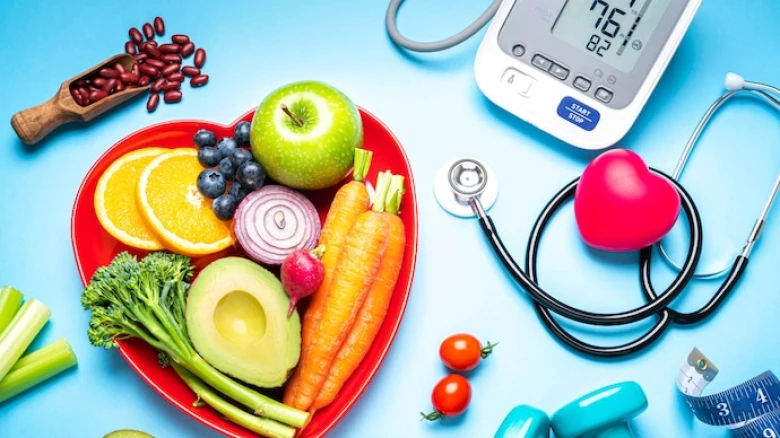Regional

The term HDL is widely used to refer to the "good" cholesterol.
Digital Desk: Your body requires cholesterol to operate properly. However, if your blood contains too much of it, it may adhere to the arterial walls and limit or even block blood flow. You run the risk of acquiring cardiac conditions including coronary artery disease as a result.
Lipoproteins, also known as liposomal proteins, transport cholesterol through the blood. Most people refer to LDL as "bad" cholesterol. A high amount of LDL cholesterol contributes to the buildup of cholesterol in your arteries. The term HDL is widely used to refer to the "good" cholesterol. It transfers cholesterol from other parts of your body back to your liver. Your liver then removes the cholesterol from your body.
In addition to your medications, you can manage your cholesterol levels with a DASH diet. A DASH diet lowers high blood pressure and improves levels of cholesterol. This reduces the risk of getting heart disease. A DASH eating plan includes
- Prioritizing on fruits, vegetables, and whole grains.
- Fat-free or low-fat dairy products, fish, poultry, beans, nuts, and vegetable oils.
- Avoiding foods high in saturated fat will help you lose weight. These include fatty meats, fatty dairy products, and tropical oils including coconut, palm kernel, and palm oils.
- Limit your intake of sugary foods and beverages.
1. Healthy fats
Specific types of fats may cause your cholesterol levels to rise. Your entire health will benefit from limiting certain types of carbs.
2. Say no to cigarette
If we smoke, our health will suffer. It affects the body's metabolism of cholesterol, increasing the risk of heart disease among other things. When smoking, the body is unable to provide the necessary amounts of cholesterol. This can damage immune system cells and hasten the process of arterial blockage.
3. Drink in moderation
Alcohol has extra calories, which could make you gain weight. If you are overweight, both your HDL and LDL cholesterol levels could rise. Drinking too much alcohol can increase your risk of having cardiac issues since it can raise blood pressure and lipid levels.
- Men should have no more than two drinks containing alcohol a day.
- Women should have no more than one drink containing alcohol a day.
4. Physical activity
Along with improving your heart health, exercise also helps you become more physically fit, battle obesity, and finally lower your cholesterol. With just 30 minutes of exercise five days a week, cholesterol levels can be increased and the risk of heart disease minimised.
5. Eat more soluble fibres
Foods high in soluble fibre help stop the digestive system from absorbing cholesterol. These include legumes like lima beans, chickpeas, black-eyed peas, lentils, and kidney beans as well as whole-grain cereals like oatmeal and oat bran, as well as fruits like apples, bananas, oranges, pears, and prunes.
6. Drink more fluids
Add the likes of green tea, berry smoothies, cocoa drinks, tomato juice and soy milk to your diet. These drinks help lower LDL or bad cholesterol levels. Antioxidants and fibre also help reduce cholesterol levels.
Understanding your cholesterol levels and how you might lower them is the first step in forming good behaviours for lifelong health. Even small changes to a healthy lifestyle can make a significant difference.
Leave A Comment